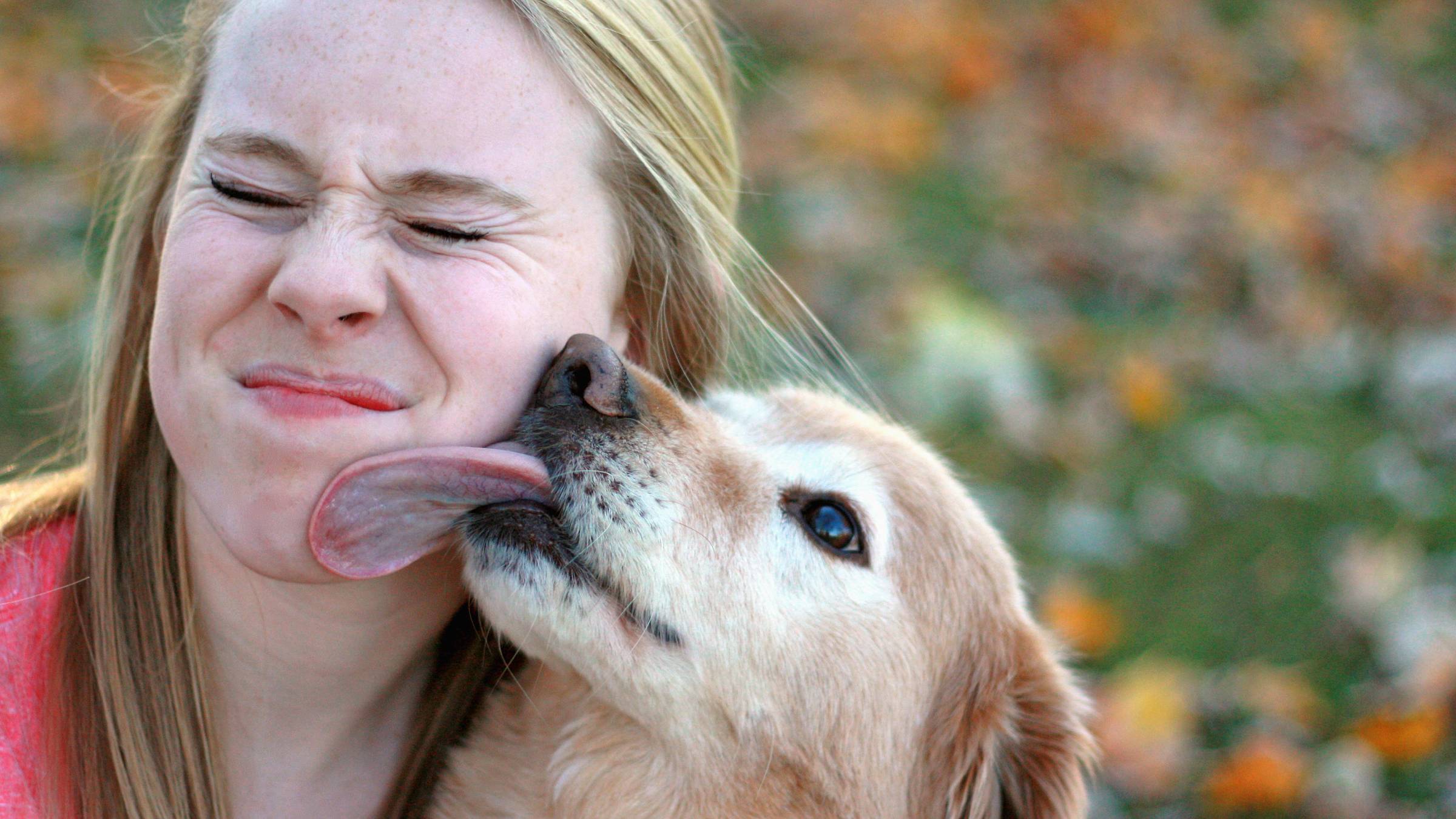
Have you done any of these things with your pets?
- Allow them to eat food from your plate
- Let them lick or “kiss” your face
- Wash their feeding bowls or other items with your own
- Go without washing your hands after petting them
Our researchers hope to get people — especially those at increased risk for infections — to limit these behaviors to avoid catching illnesses from their pets.
Getting an infection from an animal is uncommon, but it happens and owners can avoid a serious sickness by making simple changes, says Shu-Hua Wang, MD, an infectious disease researcher at The Ohio State University Wexner Medical Center.
Wang wants you to know this right up front: She’s an advocate for having pets and believes wholeheartedly in their health benefits, including emotional comfort they provide to people coping with medical issues.
“We want you to have your pets. We just want you to be educated so we can prevent any potential disease.”Shu-Hua Wang, MD, infectious disease researcher at The Ohio State University Wexner Medical Center.
She’s part of an Ohio State research team trying to increase awareness among pet owners with weakened immune systems from conditions such as diabetes, cancer, organ transplant, HIV or AIDS.
In questioning research participants, the team learned that people often don’t mention their pets or interactions with animals to doctors and don’t tell veterinarians about human health problems in their home. “There really is a disconnect,” Wang says.
For example, she studies MRSA, a type of so-called superbug staph infection that’s resistant to common antibiotics. Animals can be infected with methicillin-resistant Staphylococcus aureus without any signs, but a veterinarian who knows about an owner’s infection could try to help prevent MRSA in a pet or could attempt to rid an animal of an established infection, she says.
Some diseases you can catch from pets
Cats
Cat-scratch disease
- bacteria cause swollen lymph nodes and headaches, spread through a bite or scratch
Toxoplasmosis
- infection often goes unnoticed in healthy people
- humans usually infected from eating undercooked meat, but also transmitted through infected cat feces
- pregnant women and people with weakened immune systems are more susceptible to serious health problems; infection could spread to fetus
Dogs
Capnocytophaga canimorsus bacteria
- commonly found in dogs’ mouths
- can cause severe illness, such as meningitis, and even death in people with compromised immunity
Cats and dogs
Rabies
- deadly virus that attacks the nervous system, transmitted through scratches, bites or saliva
- dog bites are most common source of human infections, which require a series of shots to fight the virus
Ringworm
- fungal infection that causes red, itchy skin lesions shaped like rings
- can catch it from contact with an infected pet’s skin or hair and can result in serious infection in immune-compromised people
Campylobacter bacteria
- intestinal infection causing diarrhea and stomach pain that affects more than 1 million people a year
- prevalent in puppies, but adults dogs and cats get it, too
- humans usually infected from eating undercooked meat, but can get it from infected pet’s feces
- the CDC linked a recent outbreak to pet store puppies
Pasteurella bacteria
- found in saliva and mucus of dogs and cats
- animal bite or scratch can result in skin or blood infection
Birds, reptiles and other “exotic” animals
- bird droppings can carry potentially fatal cryptococcosis lung infection and parrot fever bacteria
- many turtles, lizards, snakes and frogs carry salmonella that causes diarrhea and cramping
- droppings from mice and hamsters can carry viral infections
- aquarium water can contain skin-infection bacteria
- pet chickens, pigs and goats can carry some infections listed above and others
How to avoid infections from pets
1. Speak up
Most important: If you have a serious infection or weak immunity, tell your doctor about your contact with pets or other animals. And tell your veterinarian about your condition.
When you’re thinking about getting a new pet, discuss it with your doctor and veterinarian if your immune system isn’t working properly. Puppies and kittens are more prone to carrying infectious germs and might need temporary care while you get healthier. Consider waiting to add other pets like turtles and snakes.
Get help with pet care if you or someone you love is dealing with a serious medical condition.
2. Keep clean
Practice diligent hand hygiene. This is good advice for everyone, but especially if your immune system isn’t functioning well. That means if you pet your guinea pig or throw the ball for your dog, wash your hands with running water and soap before you pick up another activity. A quick rinse won’t do.
Use disposable gloves when cleaning animal waste. Better yet, pass the job to someone else if you’re immune-compromised because some germs can be inhaled.
3. Don’t skip health checks
Keep up on pets’ vet appointments and your routine doctor visits. You and your pet will have a better chance of avoiding illness.
Use flea and tick treatments on pets that go outside, and search your pets for ticks.
4. Keep a close eye on the kids
Young kiddos are at the highest risk for animal bites because they don’t fully understand the do’s and don’ts for playing with a pet or holding it.

Compassionate, cutting-edge care for your pets
At The Ohio State Veterinary Medical Center, our top priority is making the world healthier for animals and the families who love and care for them.
Learn more about our services



